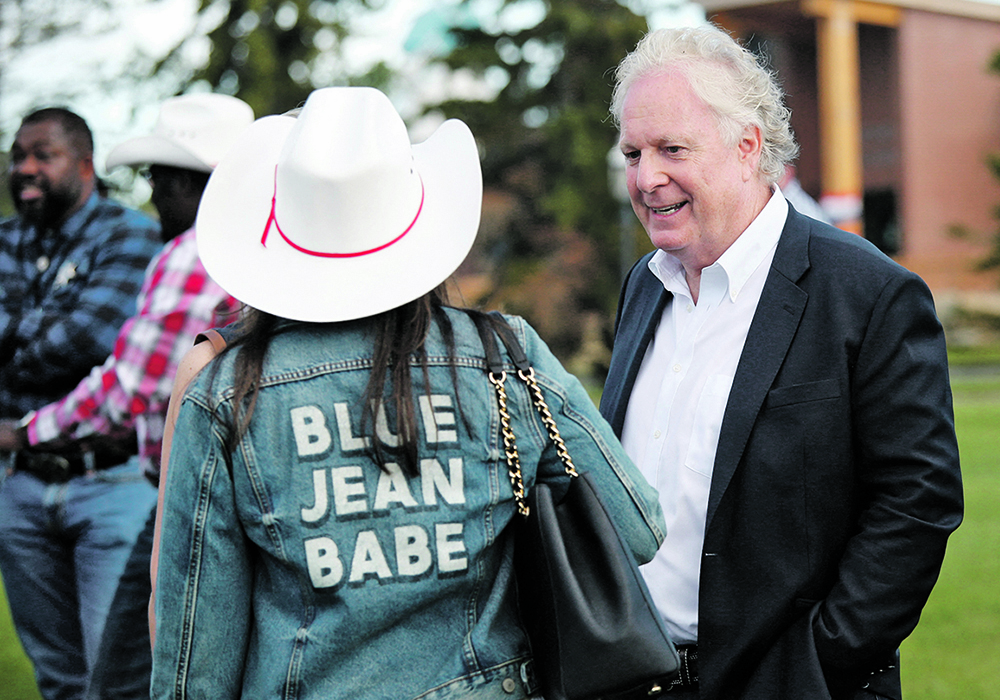Canadian farmers are feeling the pinch. Inflation is making everything from equipment to fuel to fertilizer so much more expensive.
Canadian families are feeling these impacts too. They are also seeing how a global supply chain interruption affects their household grocery lists — that’s no small inconvenience, especially for populations in northern, rural, and Indigenous communities where healthy food options have become too expensive.
The world is waking up to the harsh reality that we are on the cusp of a global food security crisis. Russia continues to set fire to Ukrainian wheat crops, destroying up to 30 percent of the world’s wheat capacity.
Read Also

Higher farmland taxes for investors could solve two problems
The highest education and health care land tax would be for landlords, including investment companies, with no family ties to the land.
Canada must take a leadership role here. We have an abundance of natural resources and it’s clear the world is going to need more Canadian agriculture and agri-food to ease supply chain concerns but more importantly, feed families who once relied on Ukrainian crops.
The Government of Canada has a responsibility to unlock the growth potential of the industry, encourage competition and get Canadian products to global markets but that is not what we have seen from the current government.
The recent advocacy effort to prevent the government from labelling Canadian ground beef is an example of the unhelpful policy constraints imposed by the Liberal government.
Canadian farmers deserve better from government leaders. Conservatives have always been proud champions of our farming community and agriculture sectors — we have a responsibility to advocate for the agriculture community.
From the onset of the Conservative party leadership race, I decided to focus on offering our members and Canadians policy solutions to our biggest challenges because we all deserve a real alternative to the current government’s vanity policies and over-reach.
The federal government’s role is to help foster a healthy marketplace by streamlining regulations, improving competition and accelerating Canadian agriculture exports. From that point onward, the federal government should get out of the way of provinces, industry and the farming community so they can get on with the business of growing and exporting the products Canadians and our allies have come to rely on.
It’s my view that we need to take a diversified approach to bolster our Canadian agriculture sector.
For starters, we must repeal Trudeau’s consumer carbon tax. It was implemented without the support of most provinces and the government failed to meaningfully consult business and industry. It unfairly punishes rural Canadians and farmers. It makes food and everything else more expensive. We absolutely must take emissions reduction seriously, but a tax alone is not a climate plan.
We also need to pursue new trade agreements and remove barriers to exports so we can open more international markets to our farmers.
We need to invest in infrastructure like ports, rail and roads that will get Canadian goods to market. We will make those investments and protect that infrastructure with a Critical Infrastructure Protection Act to ensure that unlawful blockades don’t prevent our goods from being exported.
Finally, we need to attract skilled workers to the agricultural sector. There are Canadians across the country that have the skills and the work ethic the farming industry needs — promotion of skilled trades is critical. Filling the labour gap must also include a review of the Temporary Foreign Worker program to ensure that it is fair, transparent, and meets the needs of workers and agricultural businesses.
Canadians in agriculture need government to open doors to trade so Canadian families and the world will benefit from more Canadian-made products. That’s exactly what a government under my leadership is prepared to deliver on.
Jean Charest is a Conservative Party of Canada leadership candidate. He previously served as the leader of the Progressive Conservative Party of Canada from 1993-98, deputy prime minister in 1993 and as the premier of Quebec from 2003-12 .















